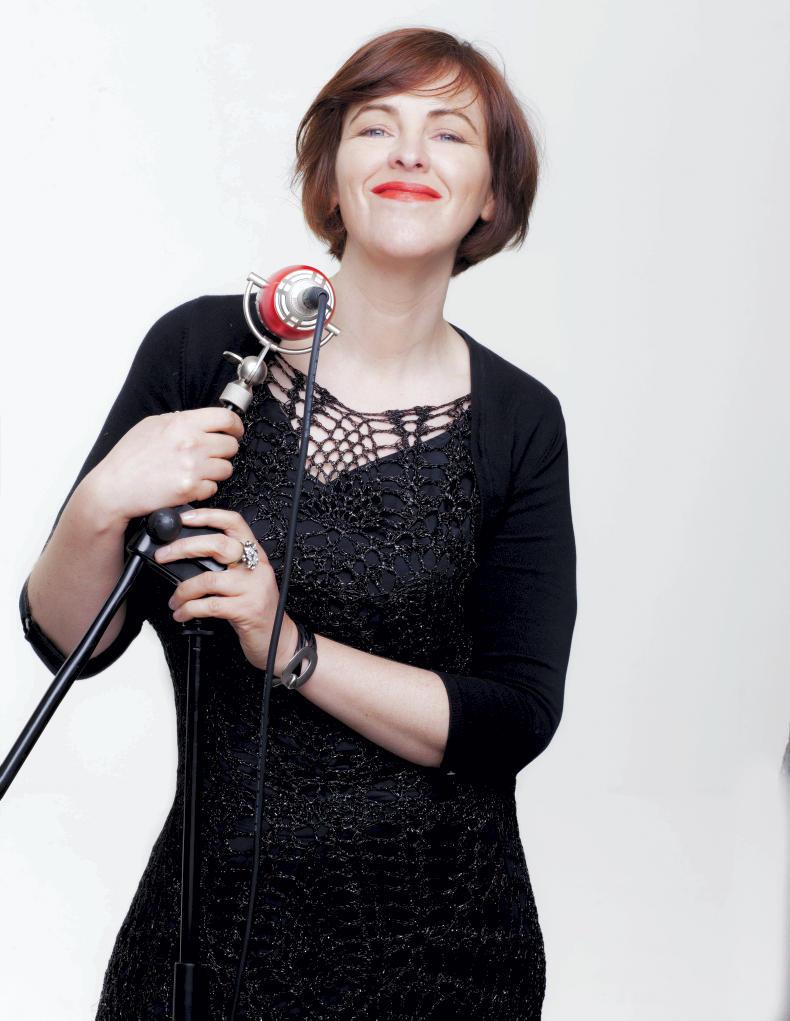Eleanor McEvoy has been chatting for quite some time when she casually drops a bombshell: She wrote a song inspired by Irish Country Living! Her track, Non-Smoking Single Female was based on the Getting in Touch section at the back of this magazine.
The singer-songwriter admits that she went through a phase of trying to set her single friends up with people on dating websites. After very limited success, someone suggested that she check out Irish Country Living inside the Farmers Journal to further her venture.
“A friend of mine said: ‘You should get the Irish Farmers Journal because they have brilliant personal ads.’ So I started buying the Farmers Journal, I had never read the paper before, being a city girl. Of course, when I moved down to Wexford it was huge here. So I wrote the song based on an ad I read in the paper.”
Thomas Moore
The inspiration for the songs on Eleanor’s latest album comes from 19th century Irish poet, singer and songwriter Thomas Moore. Through The Thomas Moore Project, Eleanor has taken the songs Thomas Moore wrote, which she feels are still quite relevant today, and changed the musical arrangements.
“There is a song called Though Humble the Banquet and it should have been invented for Celtic Tiger Ireland. It is basically saying: ‘Come around to my place, you won’t get the finest crystal or the best champagne, but you will get a warm welcome and people who love you, the important things in life’.
“I think the songs are still quite Irish the way I have done them. Maybe I have put electric guitars on them, a flugelhorn, organs and all that to make them very modern, but I think I have been true to the songs.”
Good old days
The Dubliner is now a seasoned hand at being on the road and gigging, with a sterling career already behind her, however, she remembers a time when everything wasn’t plain sailing. After studying music in Trinity, she went busking in New York, something that was not a positive experience, to put it mildly.
“It was dreadful. You see these films like Once with Glen Hansard – so romantic, so great and so wonderful – but it was absolute misery. I was completely broke, I was making money busking, but people kept trying to rob me. I was a girl on my own in Times Square. It was very tough, I wouldn’t recommend it to anybody, but I made some money, times were harder back then and it made me stronger.”
After returning to Ireland from New York, Eleanor got work teaching, before playing in an orchestra as a violinist for five years when she reached what she describes as a major turning point in her life.
“I walked into the orchestra one day and noticed one of the older guys who used to lead the orchestra was down the back sitting beside me. The older you get, your fingers go and you get moved back. I thought, in every other job, the older you get, you moved up. As a musician, when your fingers go, you get moved back. I thought: ‘That’s awful, I don’t want to do that.’”
“So, I said; ‘You know what, Eleanor, you are young enough to try this. Give up the job, try it, if it doesn’t work, maybe you can re-audition and get back in.’ I chucked in the job and went looking for a record deal. My parents were disgusted, but there you go.”
Woman’s Heart
The move certainly paid off for Eleanor, who penned the title track for the bestselling Irish album in Irish history after writing Only A Woman’s Heart, while playing in Mary Black’s band. When asked did she know at the time the impact the song would have, she scoffs: “Not at all.”
“A song with no rhymes that seems to alienate half of the population, no, it wasn’t supposed to be a hit at all. It was just a little song I wrote for myself and that was the idea of it. Then Mary Black heard it and her husband said maybe a duet with Mary on this women’s album would work. Even then it was a project album, it wasn’t anything huge and it took everybody by surprise.
“I am so happy with the road I have taken. Now, I have been incredibly lucky, I really have, not everybody has been as lucky as I have.
“I know a lot of wonderfully talented musicians who never really have been particularly successful, so luck plays a part in it, I have to acknowledge that.”
But luck or no luck, Eleanor, talent and hard work play a part in it too: we have to acknowledge that.CL
www.eleanormcevoy.com





SHARING OPTIONS